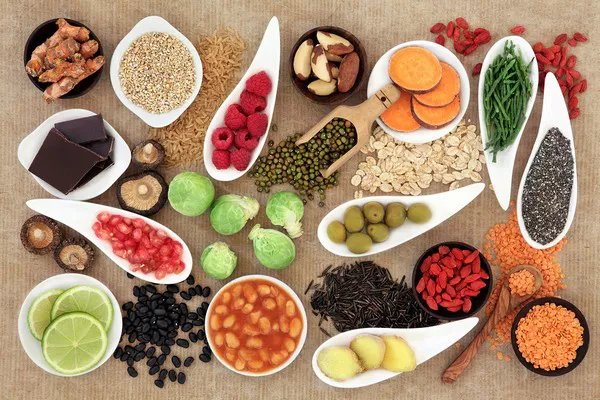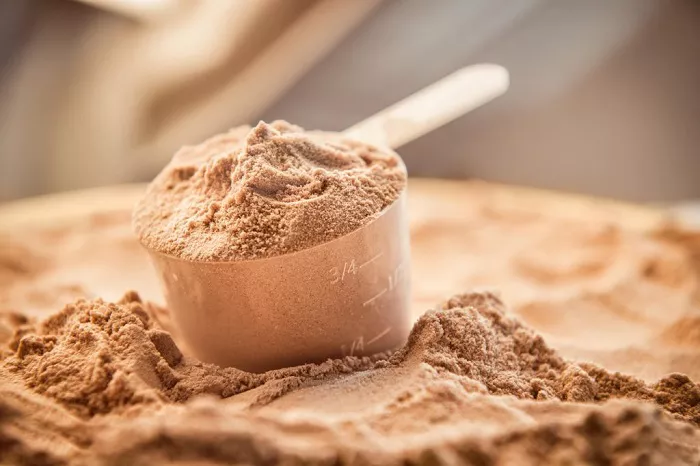Proteins are the building blocks of life, playing a crucial role in the growth, repair, and maintenance of our body’s tissues. While meat, fish, and dairy products are often the first sources that come to mind when we think of protein, it may come as a surprise that vegetables can also be excellent sources of this essential nutrient. In this article, we will explore a wide range of vegetables that are rich in proteins. From legumes to leafy greens, we will uncover the protein-packed potential of these green wonders.
The Protein Puzzle: Understanding the Importance of Proteins
Before diving into the world of protein-rich vegetables, it’s important to grasp the significance of proteins in our diet. Proteins are macronutrients made up of amino acids, which are the body’s building blocks. These amino acids are essential for a variety of functions, including the production of enzymes, hormones, and antibodies. They are also vital for tissue repair and muscle growth. Ensuring an adequate protein intake is crucial for maintaining overall health and well-being.
1.Legumes: Nature’s Protein Powerhouses
When we think of protein-rich vegetables, legumes are often the first group that comes to mind. Legumes encompass a wide variety of plants, including beans, lentils, chickpeas, and peas, and they are exceptionally high in proteins. These plant-based powerhouses provide an excellent source of essential amino acids, making them a staple for vegetarians and vegans.
2.Beans: Versatile and Protein-Packed
Beans are a protein-rich superstar in the world of vegetables. Whether you prefer kidney beans, black beans, pinto beans, or any of the numerous other varieties, you’re in for a protein-packed treat. Just one cup of cooked beans can provide up to 15 grams of protein, making them a fantastic addition to soups, stews, and salads. The versatility of beans allows them to be incorporated into a wide range of dishes, ensuring a tasty protein boost in your diet.
3.Lentils: Tiny But Mighty Protein Sources
Lentils may be small, but they are mighty when it comes to protein content. These lens-shaped legumes are a fantastic source of plant-based protein, boasting approximately 18 grams of protein per cooked cup. Moreover, lentils are rich in essential nutrients like iron, fiber, and folate, making them an excellent choice for a balanced diet. From hearty lentil soups to flavorful lentil curries, there are countless ways to incorporate these protein-packed legumes into your meals.
4.Chickpeas: The Heart of Hummus and More
Chickpeas, also known as garbanzo beans, are a popular choice for those seeking plant-based protein options. They are a key ingredient in hummus, a beloved Middle Eastern dip, but chickpeas can be used in various other culinary creations as well. One cup of cooked chickpeas provides around 15 grams of protein, making them a protein-rich vegetable that pairs well with salads, wraps, and even roasted as a crunchy snack.
5.Peas: Tiny Spheres of Protein
Peas may be small and unassuming, but they are surprisingly rich in proteins. A cup of cooked peas delivers approximately 8 grams of protein, making them a valuable addition to your diet. Whether you enjoy them as a side dish, mix them into a stir-fry, or toss them into pasta dishes, peas offer a protein punch that complements a variety of meals.
6.Leafy Greens: Green and Protein-Packed
When we think of leafy greens, protein is not typically the first nutrient that comes to mind. However, several leafy greens are surprisingly high in protein content. Incorporating these greens into your diet not only provides protein but also a host of other essential vitamins and minerals.
7.Spinach: Popeye’s Protein-Packed Favorite
Spinach, a favorite of the cartoon character Popeye the Sailor, is not just for bulging biceps. It’s also a protein-rich vegetable that can benefit anyone seeking to boost their protein intake. One cup of cooked spinach contains around 5 grams of protein, along with a wealth of vitamins and minerals. Whether you enjoy it in salads, smoothies, or sautéed as a side dish, spinach is a versatile way to increase your protein consumption.
8.Kale: The Nutrient-Dense Green
Kale has earned a reputation as a nutrient powerhouse, and its protein content is nothing to overlook. With approximately 3 grams of protein per cup of cooked kale, it may not be the highest-protein vegetable on the list, but its exceptional nutrient density makes it a valuable addition to any diet. Kale can be used in salads, soups, smoothies, and even baked into crispy kale chips for a protein-rich snack.
9.Broccoli: More Than Just a Side Dish
Broccoli is a well-known vegetable, often served as a side dish, but it’s also a surprising source of protein. One cup of cooked broccoli provides about 3 grams of protein. Additionally, broccoli is packed with fiber, vitamins, and antioxidants, making it a valuable addition to a protein-rich diet. Whether steamed, roasted, or incorporated into casseroles, broccoli adds a nutritional punch to your meals.
10.Cauliflower: A Versatile Protein Source
Cauliflower is another versatile vegetable that offers a surprising amount of protein, considering its mild flavor and versatility. One cup of cooked cauliflower provides around 2 grams of protein. It can be mashed as a low-carb alternative to potatoes, blended into creamy cauliflower soup, or even transformed into cauliflower “steaks” for a protein-rich vegetarian main course.
11.Nuts and Seeds: Protein-Rich Plant-Based Powerhouses
While not technically vegetables, nuts and seeds are essential components of many plant-based diets and are known for their impressive protein content. They are not only delicious but also packed with healthy fats, fiber, and an array of essential vitamins and minerals.
12.Almonds: A Crunchy Protein Source
Almonds are one of the most popular nuts and are celebrated for their protein content. A 1-ounce (28-gram) serving of almonds provides approximately 6 grams of protein. Almonds are a convenient and satisfying snack, and they can also be ground into almond flour for gluten-free baking or blended into almond butter for a protein-packed spread.
13.Peanuts: Nutty and Protein-Rich
Peanuts, often categorized as legumes, are commonly referred to as nuts and are a well-known source of protein. They offer approximately 7 grams of protein per 1-ounce (28-gram) serving. Peanut butter, made from ground peanuts, is a beloved protein-rich spread that can be enjoyed on sandwiches, in smoothies, or as a dip for fruits and vegetables.
14.Chia Seeds: Tiny Seeds, Big Protein
Chia seeds may be small, but they pack a punch when it comes to protein content. Just 2 tablespoons of chia seeds provide around 4 grams of protein. These tiny seeds are also rich in omega-3 fatty acids, fiber, and antioxidants. They can be added to yogurt, oatmeal, smoothies, or used to create a nutritious chia pudding.
15.Quinoa: The Complete Plant Protein
Quinoa, often referred to as a grain, is technically a seed. However, it’s a remarkable source of plant-based protein and deserves a place on our list. One cup of cooked quinoa boasts an impressive 8 grams of protein. Quinoa is also considered a complete protein, meaning it contains all nine essential amino acids, making it an excellent choice for vegetarians and vegans.
The Power of Protein: A Holistic Perspective
Proteins are essential for our overall health, and incorporating protein-rich vegetables into your diet can be a smart and nutritious choice. Whether you follow a vegetarian or vegan lifestyle or simply want to diversify your protein sources, the plant-based options discussed in this article offer a wealth of health benefits. From legumes to leafy greens, nuts, and seeds, these protein-packed vegetables can help you meet your daily protein needs while supporting your well-being.
Incorporating Protein-Rich Vegetables into Your Diet
Now that we’ve explored the world of protein-rich vegetables, you may be wondering how to incorporate them into your daily meals. Here are some practical tips for adding more protein-packed veggies to your diet:
Create Balanced Meals: Build your meals around protein-rich vegetables. For example, make a hearty bean and vegetable stew or a chickpea and spinach curry.
Snack Smart: Keep protein-rich nuts and seeds on hand for a quick and satisfying snack. A handful of almonds or a spoonful of peanut butter can provide a protein boost between meals.
Experiment with Recipes: Try out new recipes that feature protein-rich vegetables as the main ingredient. Explore the world of plant-based cooking to discover exciting flavors and textures.
Blend into Smoothies: Add leafy greens like spinach or kale, along with chia seeds or a scoop of quinoa, to your morning smoothies for a protein-packed start to your day.
Bulk up Salads: Boost the protein content of your salads by adding beans, lentils, or roasted chickpeas as toppings.
Substitute Meat: Consider replacing meat with protein-rich vegetables in some of your favorite dishes. For example, swap out ground meat for cooked lentils in a spaghetti sauce.
Diversify Your Sources: Incorporate a variety of protein-rich vegetables into your diet to ensure you receive a wide range of nutrients.
Conclusion
Proteins are essential for our health, and they can be obtained from a wide range of sources, including vegetables. Legumes like beans, lentils, chickpeas, and peas are excellent protein-rich options, while leafy greens like spinach and kale offer surprising protein content. Nuts, seeds, and pseudo-grains like quinoa also contribute to a well-rounded plant-based diet. By incorporating these protein-packed vegetables into your meals, you can enjoy a nutritious and balanced diet that supports your overall well-being. So, go ahead and embrace the power of proteins from these green wonders, and let them be a delicious and healthful addition to your culinary journey.
[inline_related_posts title=”You Might Be Interested In” title_align=”left” style=”list” number=”6″ align=”none” ids=”2408,2368,2305″ by=”categories” orderby=”rand” order=”DESC” hide_thumb=”no” thumb_right=”no” views=”no” date=”yes” grid_columns=”2″ post_type=”” tax=””]

































